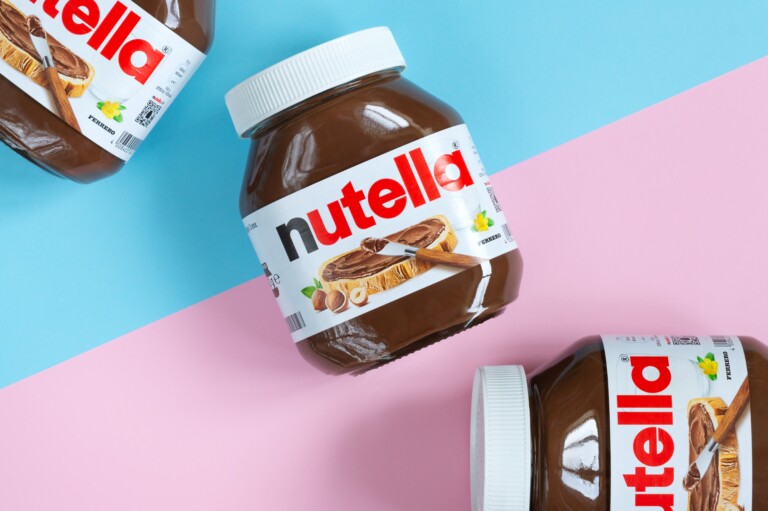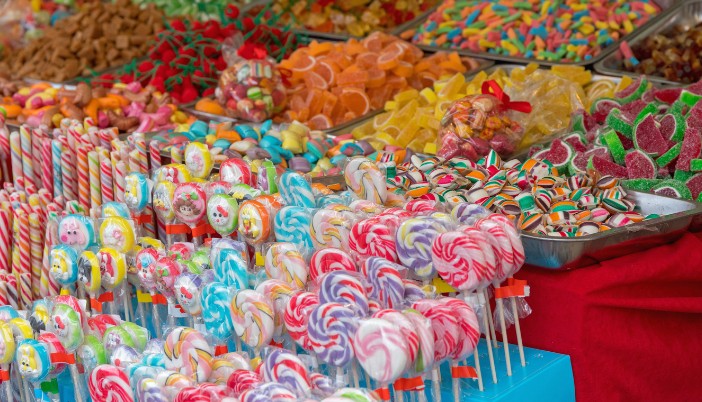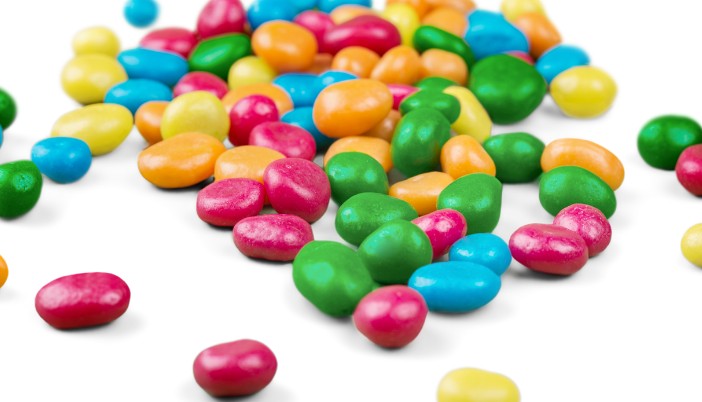Is L’Oreal Cruelty Free?
L’Oreal began in 1909 with the pioneering spirit of a young chemist, Eugène Schueller. It all started with a hair dye that he sold to hairdressers throughout Paris.
From 1957, L’Oreal started its global expansion under the direction of François Dalle and now owns many familiar brands such as Lancome, Diesel, and La Roche-Posay.
Now L’Oreal has become one of the most iconic beauty brands in the world.
The three years, 1984 through to 1987, saw L’Oreal make a push to strengthen its brand image. Since 2006 it has made an effort to become more socially and ethically responsible.
But, does that image and responsibility extend through to ending animal testing? The answer to that is, unfortunately, no.
As an Amazon Associate, I earn from qualifying purchases. The links below may be affiliate links. Please read my disclosure policy for more information.
L’Oreal claims it doesn’t test on animals
L’Oreal claims that, since 1989, it has stopped animal testing and doesn’t do so anymore:
“L’Oréal has developed a very rigorous safety evaluation procedure of its products, backed by research. Well before the question of animal testing was raised by civil society, L’Oréal has been committed to new methods of assessing safety that don’t involve animals.
A true pioneer, L’Oréal has been reconstructing human skin models in laboratories to elaborate in vitro safety tests since 1979, as an alternative to animals. In 1989, L’Oréal completely ceased testing its products on animals.
Today, L’Oréal no longer tests its ingredients on animals and no longer tolerates any exception to this rule.
L’Oreal follows a very rigorous safety evaluation procedure and has developed groundbreaking bioengineered alternatives like Episkin, which is created with human skin cells to model real skin.”
Look at that sentence in bold (which is actually bolded by L’Oreal itself). That’s a pretty definitive statement.
It doesn’t tolerate any exceptions to its stance regarding animal testing.
But then, regarding its commitments and ethics, L’Oreal has this to say:
“At L’Oréal Paris, we take ethics very seriously, so when it comes to product testing – we’re on the same page. That’s why only the most rigorous safety evaluation procedures are used across our entire product range.
We match this with a relentless effort to innovate new ground-breaking testing alternatives, like Episkin, which has been created with human skin cells to accurately mimic real skin (Keeping our process clean and pure).
It’s important to note that regardless of our on-going commitments, certain health authorities may still decide to independently conduct animal tests themselves for cosmetic products, as is still the case in China.
This is something we push to change every day with L’Oréal acting as the most active company working alongside the Chinese authorities and scientists for over 10 years to have alternative testing methods recognised. All to permit the cosmetic regulation to evolve toward the total and definite elimination of animal testing.”
So, on the one hand, L’Oreal says that it doesn’t sanction any animal testing, yet then says it’s working with China to stop animal testing. There’s a contradiction.
To be fair, L’Oreal has been pushing towards alternative testing methods and has used such methods over the past few decades. Yet it still markets its products in a country that has a legal requirement to do animal testing on certain cosmetic products.
Something that L’Oreal acknowledges.
PETA says that L’Oreal still permits animal testing
As far as PETA is concerned L’Oreal isn’t still out of the woods yet. It is still on PETA’s “to-do” list.
PETA makes this statement:
“L’Oreal has been included on PETA’s list of companies that test on animals for many years because it refused to adopt a company-wide policy against tests on animals for both its ingredients and finished products, and because it sells cosmetics products in China that are required by law to be tested on animals by government agencies.
In order to be listed as “cruelty-free” with PETA (and be included on our list of companies that do not test on animals) a company must agree that it does not and will not conduct, commission pay for, or allow tests on animals for any of their ingredients, formulations, and products, anywhere in the world.
Over the years, L’Oreal has made positive progress and taken important steps towards ending tests on animals for its products. The company adopted a policy not to test its “finished products” on animals, and eventually adopted a policy not to test its products’ ingredients on animals.
The company has also contributed significant resources to the research and development of non-animal test methods to replace some of the cruel and outdated animal test methods currently still in use. L’Oreal has also established a robust presence in China to advocate for the government to end its requirements for tests on animals for cosmetics sold there.
We applaud L’Oreal for its commitment to and progress in ending tests on animals and promoting non-animal test methods, yet L’Oreal is not eligible to be included on PETA’s cruelty-free list. L’Oreal still chooses to sell cosmetics in China that are required by law to be tested on animals.
While the Chinese government has relaxed some of the provisions of their animal testing requirements for cosmetics, it still requires that cosmetics companies pay for painful and deadly tests on animals in order to sell certain types of cosmetics.
Although some of L’Oreal’s products currently being sold in China may no longer be subject to the requirements for tests on animals, L’Oreal admits that some of the products it sells there are required by law to be tested on animals.
L’Oreal’s carefully-worded policy statement only claims that the company itself does not conduct tests on animals; L’Oreal does not deny that it pays the Chinese government to test its products on animals.
We’ve worked with many compassionate companies that have either withdrawn from the Chinese market or refused to sell in China until the country’s requirements for tests on animals for cosmetics are lifted. We urge L’Oreal to join these companies by taking an uncompromising stance on this issue and withdrawing from the Chinese market until tests on animals for its products are no longer required.”
Show L’Oreal your money, China
Remember how L’Oreal has said that it doesn’t tolerate (no exceptions) animal testing. Now we see that PETA claims it pays China to test on animals.
Uh-oh…
PETA says they urge L’Oreal to withdraw from China. But why would the company pull out of a country that is so lucrative?
On loreal-finance.com, you can access their article “L’Oreal in Mainland China: the success story continues”.
The title says it all, don’t you think?
The first part of the article has this to say:
“Year after year, the beauty market in China continues to grow, and L’Oréal had another exceptional year there in 2019, despite an overall slowdown in the Chinese economy. The market is benefiting from major shifts in demographics as well as emerging trends in cosmetics.
It is a fast-changing environment where consumers’ expectations are reaching new heights but L’Oréal continues to be the number one beauty group, and records China as its second biggest country in terms of sales.”
So China has become a huge cash cow for L’Oreal. It is now the “second biggest” country for sales in its portfolio.
The Chinese news website, CBONews, states that L’Oreal had an amazing 2020 in China:
“President of The North Asia Zone and CEO of L’ORÉAL China Fabrice Megarbane revealed ‘In 2020 the total sales of L’ORÉAL China increased by 27%.’ This figure has fallen back from the 35% increase in 2019.”
The decrease from the 2019 figure is attributed to the coronavirus pandemic.
L’Oreal makes exceptions
We have seen that L’Oreal claims to be a driving force behind ending animal testing. Yet, its policy to do so doesn’t extend across all the brands under its umbrella.
Here are some of the members of the L’Oreal family that still allow animal testing according to PETA:
- Lancome
- Diesel
- Maybelline
- La Roche-Posay
- Vichy
This goes to show that L’Oreal, though committing to end animal testing, fails to do so within all the brands that it has acquired.
Is L’Oreal for real?
Let’s be fair to L’Oreal. It says that it doesn’t do any animal testing, nor will put up with anyone doing so on its behalf.
Yet, China is such a lucrative market for the company and so it has to adhere to regulations within China. Regulations that allow for some products to be tested on animals.
As PETA states, L’Oreal is actively working with China to find alternative means of testing. Looking again at L’Oreal’s statement regarding its testing practices within China:
“(L’Oreal) acting as the most active company working alongside the Chinese authorities and scientists for over 10 years to have alternative testing methods recognised.”
So, the company is pushing in the right direction. Also, L’Oreal did take the initiative to end animal testing within the company 30 years ago (well before any real legislation was formed to end such tests).
But, then L’Oreal brought brands onboard that were (and still are) not cruelty-free. If L’Oreal was that committed to animal rights and welfare, surely it should have gone after brands that are certified cruelty-free?
You can only speculate as to why L’Oreal didn’t do so.
Perhaps, it wasn’t money in the bank for L’Oreal to look at cosmetic and skincare companies that were labeled as “cruelty-free”. Perhaps, the innovation to create alternative means for testing was limited and many companies couldn’t afford to look for other ways to test their products.
PETA says that L’Oreal refused to adopt a company-wide policy and this accusation has a ring of truth behind it. We know some of its brands aren’t cruelty-free.
What steps is L’Oreal actively taking with these brands to get them in line with the groups’ overall commitment to end animal testing? The answer is, we don’t know.
A move in the right direction
L’Oreal proudly says that it doesn’t test on animals. Let’s give the company credit where it’s due.
It is advancing research and technology to put an end to animal testing. Since 1979 it has been in the process of creating fake skin within its laboratories with which to test its products on.
Since 1989, it claims to have ended animal tests altogether.
Its move toward being seen as a socially and ethically responsible company has seen L’Oreal work with countries such as China, to promote cruelty-free test practices. An effort that is bearing fruit, ever so slowly (you also can’t ignore PETA’s influence in having China change its regulations).
PETA suggests that L’Oreal contemplates pulling out of China altogether. But the L’Oreal has been highly successful in this market.
Perhaps it thinks that working to change the mindset of Chinese authorities is the best tactic to ending animal testing.
A look on PETA’s database of companies that are certified not cruelty-free results in only a handful of L’Oreal’s brands. That may be the result of the company successfully working with the brands it owns and having them adopt the company ethic of no animal testing.
At the end of the day, L’Oreal is trying its best to be considered as a company that is cruelty-free. However, that image is dirtied by those brands within the group that haven’t adopted the same mindset.
L’Oreal doesn’t set out its strategy or even establish a target date in which it wants these brands to conform. It’s easy to say “we don’t test on animals”. Yet actions speak louder than words.
Until L’Oreal truly puts its money where its mouth is, the claim that it doesn’t test on animals can be taken with a grain of salt.
Once again, look at the statement it makes: “Today, L’Oréal no longer tests its ingredients on animals and no longer tolerates any exception to this rule.”
Yet, we see that there are exceptions to the rule through its involvement in China.
The final verdict from all this is that: L’Oreal does test on animals.





